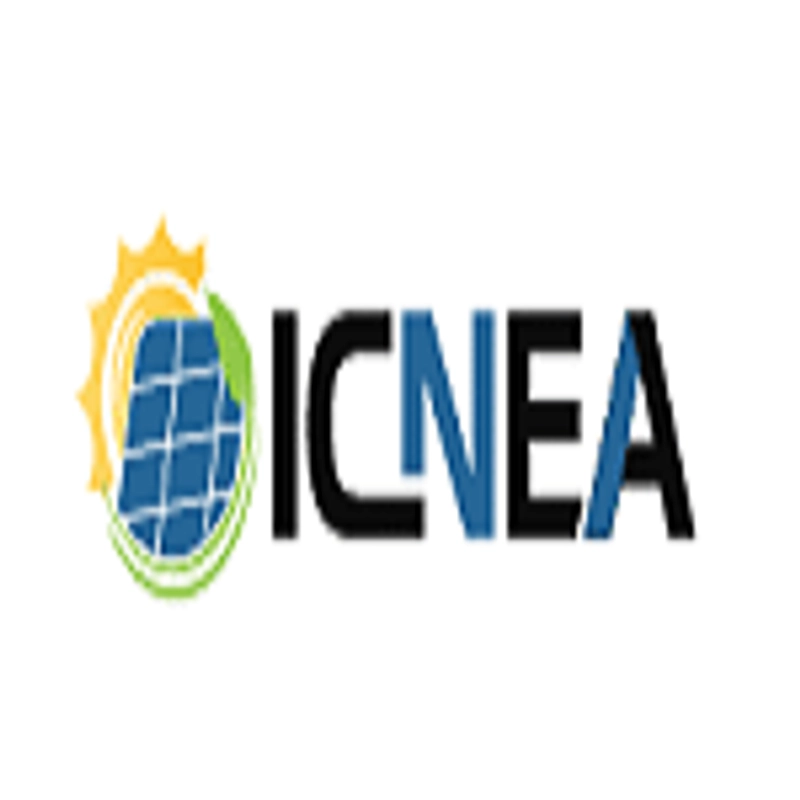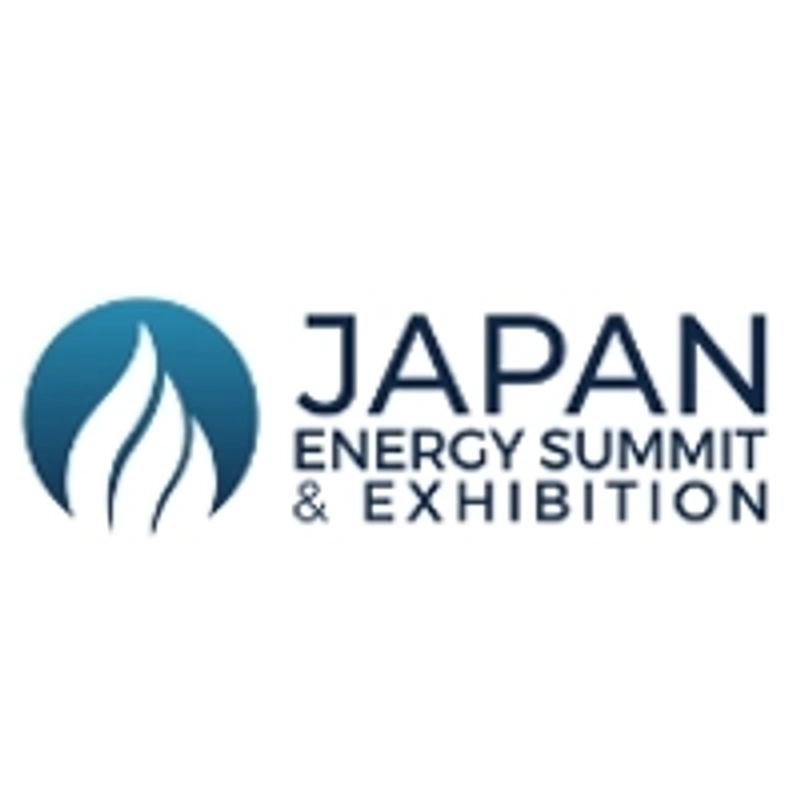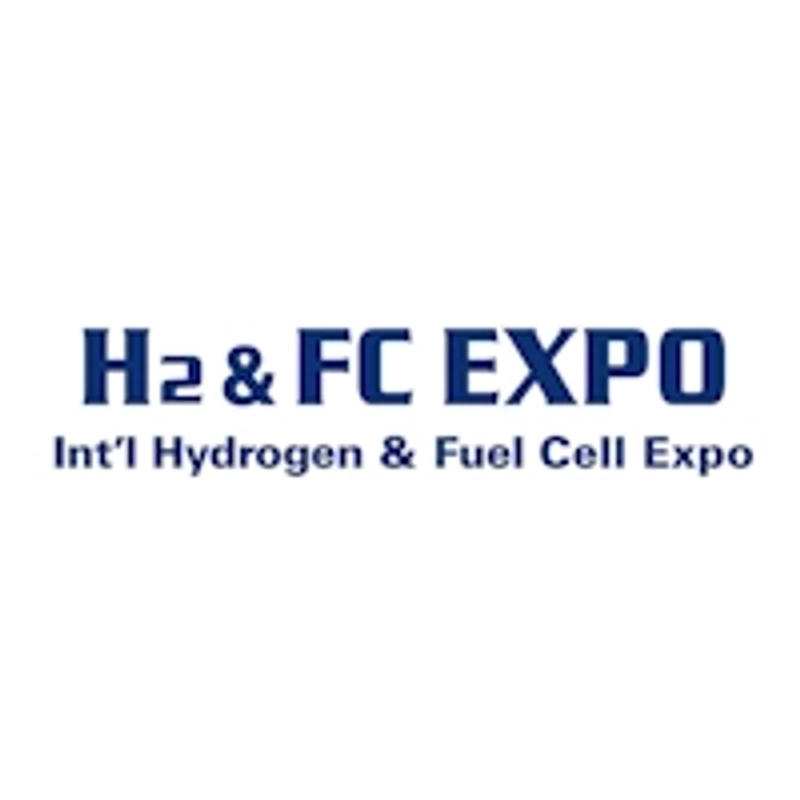Energy Production & Transportation 中的 Tokyo 事件


International Conference on Power Systems and Electrical Technology
PSET: Advancing Innovation in Power Systems Engineering and Technology
In an era defined by the increasing complexity of global energy demands and the shift toward sustainable power infrastructure, the Power Systems Engineering and Technology Conference (PSET) emerges as a crucial platform for collaboration, innovation, and technical advancement. Designed specifically for electrical engineers, researchers, and academic professionals, PSET offers a dynamic space to explore the frontiers of power systems engineering.
Bringing together experts, scholars, and industry leaders from across the globe, this conference is not just an academic gathering — it's a convergence of real-world challenges and forward-thinking solutions. Through keynote presentations, technical sessions, and open forums, PSET fosters the exchange of knowledge that is essential for addressing the evolving needs of modern power systems.
A Global Forum for Research and Collaboration in Power Systems Engineering
At its core, PSET is structured to encourage deep discussions and the dissemination of cutting-edge research. The conference provides a comprehensive agenda that spans a wide range of topics within the power systems domain, making it one of the most relevant and inclusive events for those shaping the future of energy.
Key Themes and Topics Include:
Smart grids and intelligent energy networks
Renewable energy integration and system stability
Power system protection, control, and automation
Grid resilience, reliability, and security
Power electronics and advanced transmission technologies
Energy storage, forecasting, and demand response
Electric vehicles and their impact on power systems
Each of these topics addresses the pressing issues that modern engineers face as power systems evolve to accommodate distributed generation, climate considerations, and digital transformation.
Keynote and Invited Talks from Leading Scholars
One of the major highlights of the PSET conference is its lineup of keynote and invited talks. These sessions are delivered by world-renowned scholars and thought leaders, offering attendees a chance to learn from the most influential figures in the field of power systems engineering.
What Attendees Can Expect from Keynote Sessions:
Insightful analysis of emerging technologies and research trends
Global perspectives on grid modernization and policy frameworks
Real-world case studies demonstrating innovative system design
Academic and industrial viewpoints on bridging research with application
The diversity and expertise of the speakers ensure that every participant — whether a student, professor, or practicing engineer — gains exposure to high-impact ideas and future-ready strategies.
Technical Sessions and Interactive Discussions
Beyond keynote talks, PSET offers robust technical sessions that provide space for researchers to present their work, receive feedback, and engage with peers in meaningful discussion. These sessions form the academic backbone of the conference, covering both theoretical models and applied innovations.
Conference Sessions Cover:
Peer-reviewed paper presentations
Technical panel discussions on trending challenges
Cross-disciplinary sessions on hybrid energy systems
Poster presentations from emerging researchers and graduate students
The inclusive structure of PSET encourages participation from all levels of expertise, making it a valuable experience for established researchers as well as early-career professionals looking to build their presence in the field.
Networking and Collaboration Opportunities
What makes PSET particularly impactful is the emphasis on collaboration and cross-pollination of ideas. The conference is structured to promote interaction between academia, industry, and government sectors, ensuring that discussions go beyond theory and into practice.
Opportunities for Engagement:
Q&A panels with experts from utilities and research labs
Dedicated networking sessions and informal meetups
Opportunities to collaborate on funded research and joint publications
Access to cutting-edge tools, platforms, and case studies
For professionals looking to expand their networks, identify project collaborators, or explore international partnerships, PSET is the ideal venue.
Building the Future of Energy Through Knowledge Exchange
As the energy landscape continues to shift toward decentralization, digitization, and decarbonization, the role of electrical engineers becomes even more critical. Conferences like PSET offer more than academic prestige — they provide the intellectual infrastructure needed to tackle the energy transition with innovation and resilience.
PSET Supports Sustainable Development By:
Promoting research that addresses energy access and grid equity
Encouraging interdisciplinary collaboration for smarter infrastructure
Supporting capacity building in power engineering education and practice
Aligning engineering innovation with global climate goals
Through a rich program of presentations, debates, and strategic conversations, PSET empowers its attendees to become active contributors to the design and maintenance of sustainable power systems around the world.
Who Should Attend PSET?
PSET is tailored for a wide range of professionals working in or adjacent to the power systems field. Its content, structure, and reach make it relevant to:
Electrical engineers and system designers
Academic researchers and university faculty
PhD students and postdoctoral fellows
Utility operators and energy policy experts
Technology developers and solution vendors
Government regulators and project funders
No matter your background, if your work involves the generation, distribution, control, or optimization of electric power, PSET offers unmatched value.
PSET as a Launchpad for the Next Generation of Power Systems
The Power Systems Engineering and Technology Conference is more than an academic event. It is a platform for shaping the direction of global energy systems through collaboration, dialogue, and research excellence. As the challenges of energy security, sustainability, and modernization grow more complex, PSET serves as a strategic nexus for the ideas and people who are ready to meet them head-on.
Whether you're presenting groundbreaking research, networking with peers, or absorbing insights from global experts, your participation at PSET places you at the heart of innovation in power systems engineering.


International Conference on New Energy and Applications
International Conference on New Energy and Applications (ICNEA): Advancing the Frontiers of Energy Innovation
As the global demand for sustainable and clean energy continues to rise, the International Conference on New Energy and Applications (ICNEA) has emerged as a crucial platform for sharing knowledge, sparking innovation, and encouraging cross-sector collaboration. Held annually, ICNEA attracts scholars, industry leaders, and policy influencers from around the world, all committed to shaping the future of new energy technologies and their practical applications.
With the dual focus on academic excellence and real-world solutions, the conference supports both theoretical discussions and hands-on insights into cutting-edge energy advancements.
A Premier Global Forum for New Energy Innovations
The ICNEA aims to become one of the world’s leading international conferences for presenting novel and fundamental advances in the field of new energy and applications. Its multidisciplinary agenda spans renewable technologies, smart grids, storage systems, green fuels, hydrogen innovation, and more.
The conference provides a vibrant forum where:
Researchers can present peer-reviewed papers and exchange methodologies
Practitioners showcase case studies and field applications
Government officials and regulators explore policy frameworks that support adoption
Private companies and investors discover commercialization opportunities
By bridging academia, industry, and governance, ICNEA fosters an ecosystem where ideas evolve into impactful technologies.
Core Themes of ICNEA: What the Conference Explores
Spanning several scientific disciplines and technical domains, the ICNEA highlights new energy solutions that contribute to environmental, economic, and social sustainability. Some of the major conference tracks include:
1. Renewable Energy Systems
Photovoltaic (PV) technologies
Wind and hydro energy systems
Biomass and biofuel advancements
Geothermal energy conversion techniques
2. Energy Storage and Grid Integration
Battery technologies (Li-ion, solid-state, flow batteries)
Supercapacitors and hybrid storage
Smart grid architecture and resilience
Demand-side management and load forecasting
3. Clean Fuels and Hydrogen Technology
Hydrogen production and fuel cells
Synthetic fuels and ammonia
Clean combustion systems
Fuel processing and infrastructure
4. Energy Applications and Industrial Innovation
Electric vehicles (EVs) and mobility solutions
Green HVAC and building energy management
Off-grid and rural electrification projects
AI and IoT applications in energy management
Key Features That Make ICNEA Stand Out
The success and growth of the ICNEA can be attributed to its thoughtful programming, interactive sessions, and participant diversity. Here are some of its most valuable features:
Keynote Presentations
ICNEA invites prominent experts in energy science, policymaking, and innovation to deliver thought-provoking keynote addresses that define the conference's direction each year.
Paper Presentations and Peer Reviews
Researchers are encouraged to submit original contributions, with accepted papers presented during technical sessions. Each submission undergoes rigorous peer review, ensuring academic quality.
Networking Opportunities
With in-person and virtual networking sessions, ICNEA ensures meaningful interactions between:
Energy tech startups and investors
Students and senior researchers
Academic institutions and private R&D departments
Engineers and policymakers
Workshops and Industry Panels
Practical workshops, sponsored by corporate partners or universities, offer skills-based learning. Simultaneously, panel discussions tackle real-world issues like market access, regulation, and energy equity.
Benefits of Participating in ICNEA
Attending ICNEA can offer several benefits for participants from various sectors. Below is a detailed look at what makes this event indispensable for professionals and scholars alike:
For Academics:
Present research in front of an international audience
Receive feedback from subject matter experts
Publish in prestigious conference proceedings or journals
Build academic collaborations across borders
For Industry Professionals:
Discover new technologies and market trends
Connect with researchers working on scalable solutions
Form R&D partnerships with universities and labs
Learn about upcoming policies and incentives
For Policymakers:
Understand industry concerns and technical limitations
Engage with innovators creating impactful energy tools
Participate in roundtables on regulations and global energy policy
Support frameworks for energy justice and sustainability
A Collaborative Environment that Fosters Innovation
One of the hallmarks of the ICNEA is its emphasis on direct communication between stakeholders. Unlike traditional academic events, this conference encourages informal interactions, roundtable discussions, and thematic networking dinners.
Here are some of the cooperative opportunities the conference fosters:
University-to-University collaboration for international research grants
Public-private partnerships for deploying new energy pilots
Joint ventures between startups and energy conglomerates
Mentoring programs connecting young professionals with seasoned experts
Such face-to-face interactions are invaluable in building trust and long-term partnerships, especially in a rapidly evolving field like energy.
Looking Toward the Future of Energy
The importance of new energy and applications cannot be overstated. With nations worldwide committing to net-zero emissions, the pace of energy innovation must match ambitious climate goals. ICNEA is more than a conference—it is a launchpad for technologies, discussions, and collaborations that will define the coming decades.
As such, ICNEA aligns with the following global priorities:
United Nations Sustainable Development Goal 7: Affordable and clean energy
Paris Climate Agreement: Accelerating low-carbon transitions
Green economic recovery plans post-COVID-19
Global energy access initiatives in underserved regions
Why ICNEA Matters
The International Conference on New Energy and Applications is not just a technical gathering—it’s a catalyst for change. By assembling thinkers and doers from diverse disciplines, ICNEA advances the global energy dialogue and empowers the development of practical, scalable, and sustainable energy solutions.
In Summary, ICNEA offers:
A multidisciplinary platform for emerging technologies
Peer-reviewed insights into the future of energy systems
Access to leaders shaping energy policy and innovation
A space for cultivating long-term partnerships and R&D ventures
Whether you are an energy researcher, industrial innovator, policy advocate, or student, ICNEA offers unmatched value in connecting you with the brightest minds and the latest breakthroughs in new energy and its applications.


JAPAN ENERGY SUMMIT & EXHIBITION
日本能源峰会和展览坐落在东京繁华的街道中,成为全球能源领域创新、可持续发展和合作的灯塔。它不仅仅是一个事件,它代表着一个纽带,在这里,有远见的人们汇聚一堂,塑造一个由可再生资源和环境管理驱动的未来。
这次年度聚会以东京Big Sight为背景,是创意、技术和伙伴关系的熔炉,这些创意、技术和伙伴关系将塑造日本及其他地区的能源格局的轨迹。日本坚定不移地致力于碳中和和能源安全,在推动向更清洁、更绿色的未来过渡方面发挥领导作用。
该峰会由活动管理领域的强国dmg events组织,旨在策划一个充满活力的平台,行业巨头和开创性初创企业都可以在该平台上展示他们的最新进展。从开创性的液化天然气技术到氢气和氨的创新解决方案,展厅充满了进步的能量。
日本能源峰会与展览的与众不同之处在于其应对现代能源模式挑战的多方面方法。通过聚焦低碳解决方案、可再生能源和弹性供应链等主题,峰会促进了超越传统界限的整体对话。
但是,也许本次活动最独特的方面在于它对协作和包容性的重视。除了作为行业巨头的聚会场所外,它还为新兴参与者提供了一个大放异彩的舞台。创业区为创新型初创企业提供了一个跳板,让他们与知名领导者一起展示其颠覆性技术,培育创新和创业的生态系统。
此外,“气候技术挑战赛” 竞赛为峰会增添了一个激动人心的维度,邀请参与者直面紧迫的环境挑战。从碳捕集到燃料电池技术,该竞赛激发了追求可持续解决方案的创造力和独创性。
随着又一次成功的峰会落下,东京回荡着合作、创新和可能性的回响。日本能源峰会和展览不仅证明了日本对可持续未来的承诺,而且还是全球变革的催化剂,以寻求更清洁、更光明的明天。


International Hydrogen & Fuel Cell Expo (H2&FC Expo)
H2和FC博览会,前身为FC EXPO,是专门讨论氢气和燃料电池技术的首屈一指的国际贸易展览会。该活动每年三月在日本最具标志性和技术先进的展览场所之一东京国际展览中心举行,现已发展成为氢能领域利益相关者的重要聚会。自2005年首次亮相以来,该博览会吸引了来自全球各地的专家、创新者、研究人员、制造商和决策者,为探索氢能解决方案的最新进展提供了一个独特的平台。从@@
2023年9月在千叶举行的展会开始,最近将该展会更名为H2和FC EXPO,这凸显了氢气作为全球向二氧化碳中和过渡的关键参与者的重要性日益提高。随着世界努力应对脱碳行业的挑战,氢气已成为一种多功能且必不可少的能源载体,有可能彻底改变各个行业。从交通和能源生产到工业应用,氢气为化石燃料提供了更清洁的替代品,其在减少温室气体排放方面的作用变得越来越重要。
今年的活动聚焦氢和燃料电池技术的最前沿发展。关键主题包括氢气的生产、运输、储存和利用。该展会以种类齐全的展品为特色,展示推动氢气价值链发展的创新解决方案。与会者可以期待看到对氢燃料电池至关重要的材料和组件的最新进展,例如电解质、离子交换膜、电极、催化剂、气体扩散层 (GDL) 和膜电极组件 (MEA)。这些组件是氢燃料电池技术的核心,在提高效率和性能方面起着关键作用。
同样重要的是展会上展示的先进测试和分析技术。该活动以燃料电池评估为重点,重点介绍了用于评估燃料电池电气特性的专业设备,包括单电池测试设备、功率负载设备、阻抗分析仪和气体分析仪器。这些工具对于确保氢燃料电池符合大规模商业化和集成到现实应用所需的严格标准至关重要。除了@@
技术展示之外,H2 & FC EXPO还是行业领导者、政策制定者和创新者讨论和制定未来氢能战略的合作空间。该博览会为建立人脉、知识共享和建立战略伙伴关系提供了许多机会,这些机会可以推动氢能行业向前发展。随着氢气成为全球脱碳战略的关键组成部分,对于那些希望在这个快速发展的领域保持领先地位的人来说,该博览会是宝贵的资源。
除了展示最新的技术和创新外,该活动还重点介绍了氢基础设施方面的重大投资和进步。日本是氢气研发领域的全球领导者,继续突破氢气采用的极限,使H2和FC EXPO成为任何有兴趣探索清洁能源未来的重要平台。展会的参展商和参与者多种多样,确保与会者全面了解氢能行业,从基础材料到最终用途应用。
H2 & FC EXPO不仅仅是一个贸易展览会,它是全球能源格局中的一个关键活动,与对可持续能源解决方案的日益增长的推动相吻合。随着世界各国优先考虑减少其碳足迹,氢燃料电池技术将在塑造清洁能源的未来方面发挥越来越重要的作用。这个充满活力的展会既是最新进展的展示,也是推动全球范围内氢气采用所必需的合作的催化剂